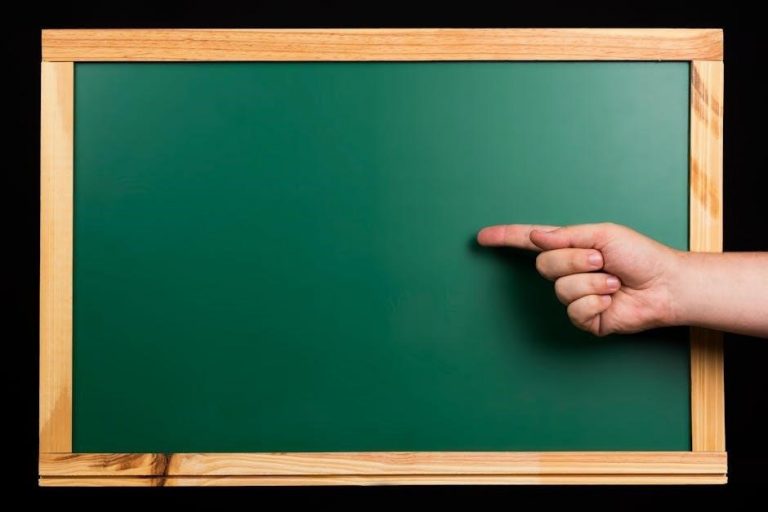The Request for Registration for Instruction and Judgment is a formal process where parties notify the court their case is ready for trial or judgment.
1.1 Definition and Purpose
The Request for Registration for Instruction and Judgment is a legal procedure where parties formally notify the court that their case is ready for trial or judgment. Its primary purpose is to ensure the case progresses efficiently through the judicial system. This process is essential for organizing court proceedings, verifying case readiness, and facilitating timely resolutions. It serves as a critical step in advancing legal matters toward final decisions, ensuring procedural integrity and adherence to legal standards.
1.2 Legal Context in Quebec
The Request for Registration for Instruction and Judgment is rooted in Quebec’s Code of Civil Procedure (NCPC), specifically Articles 174 and 175. This process ensures cases are properly prepared and ready for trial or judgment. It requires the use of specific forms, such as the SJ-1100 for joint declarations and SJ-1102 for default judgments. Recent reforms have updated these forms and protocols to enhance efficiency and fairness in legal proceedings, reflecting Quebec’s commitment to modernizing its judicial system effectively.
Legal Framework Governing the Request
The process is governed by Quebec’s Code of Civil Procedure (NCPC), specifically Articles 174 and 175, which outline the requirements and procedures for case registration.
2.1 Relevant Provisions of the Code of Civil Procedure (NCPC)
Under the NCPC, Articles 174 and 175 govern the request for registration for instruction and judgment. Article 174 requires a joint declaration by parties or unilateral filing if cooperation fails. Article 175 specifies procedures for cases involving default or failure to produce a defense. These provisions ensure cases are properly prepared and ready for trial, adhering to legal standards and court protocols, while maintaining fairness and efficiency in judicial proceedings.
2.2 Specific Forms and Documents Required
The process requires specific forms, such as the SJ-1100 for registration requests and SJ-1102 for default judgments. A joint declaration by parties or a unilateral filing is mandatory. Additional documents include a sworn statement for default cases and proof of service. The latest versions of these forms must be used, as updates are regularly implemented. Proper completion and submission of these documents ensure compliance with legal requirements and facilitate efficient court proceedings.

The Role of the Court Clerk in the Process
The court clerk manages case registration, verifies document completeness, and ensures compliance with legal requirements. Their decisions directly impact the efficiency and progression of court proceedings.
3.1 Responsibilities of the Clerk
The court clerk is responsible for receiving and reviewing the Request for Registration for Instruction and Judgment (SJ-1100 form), ensuring all documents are complete and compliant with legal standards. They verify the accuracy of submissions, maintain case records, and coordinate scheduling with judges and parties. The clerk also ensures cases are properly categorized and ready for trial or judgment, playing a critical role in the efficient progression of legal proceedings. Their oversight guarantees procedural integrity and adherence to court rules.
3.2 Impact of the Clerk’s Decisions
The clerk’s decisions significantly influence the progression of cases, as they determine whether a case is properly registered for trial or judgment. If the clerk identifies errors or missing documents, the case may face delays or be dismissed. Their rulings ensure procedural compliance, maintaining the integrity of legal processes. The clerk’s actions directly impact the timing and efficiency of trials, emphasizing their crucial role in upholding judicial standards and ensuring cases are properly prepared for adjudication.
Required Documentation for Filing the Request
Filing the request requires specific forms, declarations, and proofs, ensuring compliance with legal standards and procedural requirements for the case to be properly considered by the court.
4.1 General Requirements
The process requires specific documents, including a completed SJ-1100 form, a joint declaration from all parties, and proof of compliance with procedural timelines. The declaration must confirm the case’s readiness for trial or judgment. Additional documentation may include a protocole de l’instance and any relevant proofs or affidavits. Non-compliance with these requirements can delay or invalidate the request. Proper completion of forms ensures procedural integrity and aligns with the Code of Civil Procedure (NCPC) standards, facilitating efficient case management.
4.2 Specific Documents for Instruction and Judgment
Key documents include the completed SJ-1100 form for registration, a joint declaration by parties, and proof of service. For default judgments, the SJ-1102 form is required. Additional documents may involve affidavits, proofs of claims, or reproductions of judgments. A protocole de l’instance must also be filed, outlining case details. Properly completed and signed forms ensure compliance with legal standards, facilitating the court’s review and scheduling of the case for instruction or judgment.

The Procedure for Filing the Request
The procedure involves submitting the completed SJ-1100 form, either through a joint declaration or unilateral filing, to the court clerk for review and processing.
5.1 Joint Declaration by Parties
The joint declaration by parties involves both the plaintiff and defendant agreeing to submit the SJ-1100 form, indicating the case is ready for trial or judgment. This cooperative step streamlines the legal process, ensuring all necessary documents are prepared. The form, specific to the Court of Quebec, is reviewed by the court clerk to verify completeness before scheduling a hearing, fostering efficiency in the judicial proceedings.
5.2 Unilateral Filing in Case of Dispute
In cases of disagreement, a unilateral filing for instruction and judgment may be submitted by one party if the other refuses to cooperate. This involves using the SJ-1102 form for default judgment or when a party fails to respond. The court clerk reviews the file to ensure it is complete and ready for adjudication. If the defendant has not fulfilled procedural obligations, the plaintiff may proceed alone, potentially leading to a default judgment in their favor. The clerk verifies compliance with legal requirements before proceeding.

Implications of Missing Deadlines or Requirements
Missing deadlines or failing to meet requirements may result in dismissal of claims or default judgments, significantly impacting both the plaintiff’s and defendant’s legal standing and outcomes.
6.1 Consequences for the Plaintiff
If the plaintiff fails to meet deadlines or requirements for the Request for Registration for Instruction and Judgment, their case may face dismissal or default judgment. This can result in the loss of their legal claim, as the court may rule in favor of the defendant due to procedural non-compliance. Additionally, repeated missed deadlines could lead to penalties or the case being struck from the court’s list, delaying resolution and potentially harming the plaintiff’s legal standing.
6.2 Consequences for the Defendant
If the defendant fails to meet the required deadlines or obligations for the Request for Registration for Instruction and Judgment, they may face a default judgment, where the court rules in favor of the plaintiff without the defendant’s input. This can lead to an unfavorable outcome, potential financial penalties, and a loss of the opportunity to present their case. Additionally, delays caused by the defendant’s non-compliance can prolong the legal process, impacting their standing, increasing legal costs, and potentially affecting future proceedings.

Recent Reforms and Updates to the Process
Recent reforms have introduced updated forms and protocols for the Request for Registration for Instruction and Judgment, ensuring streamlined procedures and compliance with legal requirements.
7.1 Changes to Forms and Protocols
Recent reforms have introduced updated forms, such as the SJ-1100, and new protocols for the Request for Registration for Instruction and Judgment. These changes aim to streamline procedures and ensure compliance with legal standards. The updated forms apply to all districts across the province, promoting consistency and fairness in legal processes. Additionally, new requirements for legal representatives have been implemented to enhance the efficiency of case management and preparation for trial.
7.2 New Requirements for Legal Representatives
Legal representatives must now comply with updated obligations, including providing detailed case information and adhering to stricter timelines. The reforms emphasize the importance of collaboration between parties to ensure procedural fairness. New requirements include submitting specific documentation and Declarations of Readiness, which streamline case preparation. Failure to meet these obligations may result in delays or dismissal of the case. These changes aim to enhance the efficiency of legal proceedings and ensure all parties are adequately prepared for trial or judgment.
The Request for Registration for Instruction and Judgment is a critical step in advancing legal proceedings. Recent reforms emphasize streamlined processes and stricter compliance requirements. Legal representatives must adhere to updated obligations, ensuring cases are thoroughly prepared. Proper documentation and timely submissions are essential to avoid delays or dismissals. These changes reflect a commitment to efficiency and fairness, ensuring all parties are prepared for trial or judgment. Adherence to these requirements is vital for maintaining the integrity of the legal process.
